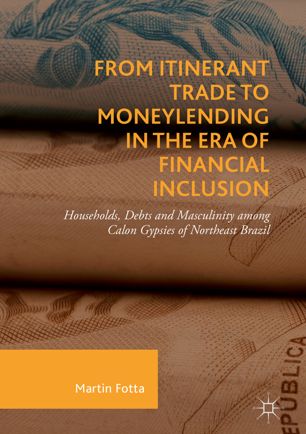

Most ebook files are in PDF format, so you can easily read them using various software such as Foxit Reader or directly on the Google Chrome browser.
Some ebook files are released by publishers in other formats such as .awz, .mobi, .epub, .fb2, etc. You may need to install specific software to read these formats on mobile/PC, such as Calibre.
Please read the tutorial at this link. https://ebooknice.com/page/post?id=faq
We offer FREE conversion to the popular formats you request; however, this may take some time. Therefore, right after payment, please email us, and we will try to provide the service as quickly as possible.
For some exceptional file formats or broken links (if any), please refrain from opening any disputes. Instead, email us first, and we will try to assist within a maximum of 6 hours.
EbookNice Team

Status:
Available5.0
10 reviewsThis book analyses how Calon Gypsies in Brazil have responded to global financial transformations and shifted their economic practices from itinerant trade to moneylending. It also explores their role as ethnic credit providers, offering rare insight into the financial lives of poor and lower-middle-class Brazilians.
More broadly, this volume examines how ethnic difference is created in a context where fixed and collective structures supporting ethnic identity are missing. It is important reading for economic anthropologists, cultural economists and all those interested in processes of financialisation from a local perspective, as well as those fascinated by informal economies, how exchange and debt relate to social and political marginality, and how financial credit becomes 'domesticated' by communities.